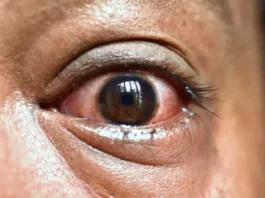
Autism Spectrum Disorder (ASD) is a complex neurodevelopmental condition that affects individuals differently. It’s a journey that starts early in life, and recognizing the signs is crucial for timely intervention. In this post, we will explore the early signs that your child might have autism, discuss at what age autism is first noticed, delve into the symptoms that usually manifest first in children with autism, examine what steps can be taken for prevention, and explore factors that increase the risk of autism.
Early Signs that Your Child Might Have Autism
Early signs of autism can vary widely from one child to another, but there are common behavioral cues to look out for. These early indicators may appear as early as the first few months of life:
- Social Challenges: Infants who later develop autism might not respond to social cues as expected. They may avoid eye contact and seem disinterested in faces, making it challenging to establish a connection.
- Communication Difficulties: Delayed or limited speech development is a hallmark sign. Children with autism may not babble, gesture, or engage in baby talk as other infants do.
- Repetitive Behaviors: Some children exhibit repetitive actions, like rocking, hand-flapping, or excessive lining up of objects. These behaviors can be an early clue.
- Lack of Interest in Pretend Play: Children with autism may struggle to engage in imaginative or pretend play, opting for more repetitive activities instead.
- Difficulty with Change: Infants and toddlers may become extremely upset with even minor changes in routine or environment, demonstrating rigidity in their preferences.
At What Age Is Autism First Noticed?
Autism is typically noticed in early childhood, with signs often becoming apparent by the age of 2 or 3. However, some parents and caregivers may notice subtle differences even earlier, as mentioned above.
The process of diagnosis can vary, with some children receiving a formal diagnosis by the age of 2, while others may be diagnosed later, especially if their symptoms are milder or less distinct. Early intervention is key, so if you suspect your child may have autism, it’s essential to seek professional evaluation and support as soon as possible.
READ ALSO; Why Teaching Your Child How To Swim is The Best Survival Gift As a Parent
What Symptoms Usually Show Up First with Children with Autism?
The symptoms that typically manifest first in children with autism revolve around the core features of ASD. These include challenges in social communication and the presence of repetitive behaviors. Early symptoms often include:
- Limited Eye Contact: A lack of eye contact or difficulty in maintaining it is a common early sign.
- Delayed Speech or Language Difficulties: Many children with autism exhibit delayed speech development or difficulties with language, such as not responding to their name or struggling with simple conversation.
- Limited Social Interaction: Children may appear disinterested in playing with others or have difficulty forming relationships with peers.
- Repetitive Actions: Early signs often involve repetitive behaviors like hand-flapping, spinning objects, or repeating certain phrases.
- Fixation on Routine: Children with autism may insist on sameness and become distressed when routines are disrupted.
- Sensory Sensitivities: Sensory sensitivities, such as being overly sensitive to light, sound, or touch, can also be early indicators.
What Can I Do to Prevent Autism?
It’s important to clarify that there is no surefire way to prevent autism as it is a complex condition with a multifactorial origin, likely involving genetic and environmental factors. However, there are steps you can take to promote a healthy pregnancy and early development:
- Prenatal Care: Ensuring good prenatal care, including proper nutrition and regular check-ups during pregnancy, is essential for a healthy start.
- Healthy Lifestyle Choices: Maintaining a healthy lifestyle, including a balanced diet, regular exercise, and avoiding smoking and excessive alcohol consumption during pregnancy, can contribute to overall well-being.
- Genetic Counseling: If you have concerns about a family history of autism or other developmental disorders, consider consulting with a genetic counselor to discuss potential risks.
- Early Intervention: If your child is at risk or is showing early signs of autism, seeking early intervention services can make a significant difference in their development. These services can help address developmental delays and improve social and communication skills.
- Stay Informed: Stay informed about developmental milestones and seek professional guidance if you have concerns about your child’s development.
What Increases the Risk of Autism?
While the exact cause of autism remains elusive, several factors are believed to increase the risk of autism spectrum disorder:
- Genetics: Family history plays a significant role. If you have a sibling or parent with autism, the risk may be higher.
- Advanced Parental Age: Research suggests that children born to older parents, especially mothers over 35, may have a slightly increased risk.
- Preterm Birth: Babies born prematurely are at a higher risk of developmental disorders, including autism.
- Certain Medical Conditions: Certain medical conditions during pregnancy, such as gestational diabetes and maternal infections, may increase the risk.
- Environmental Factors: Some studies have explored environmental factors, such as exposure to air pollution or certain chemicals during pregnancy, as potential contributors to autism risk, but more research is needed in this area.
The Bottom Line
Understanding the early signs of autism, the age at which it is noticed, and the initial symptoms that manifest are crucial for early intervention and support. While there are no guaranteed methods to prevent autism, maintaining a healthy lifestyle during pregnancy and seeking early intervention services can make a significant difference in a child’s developmental journey.















